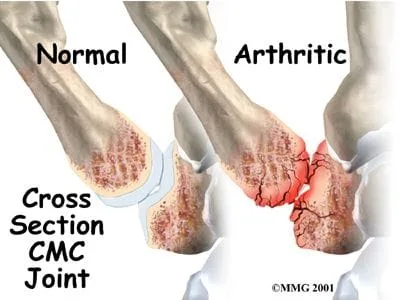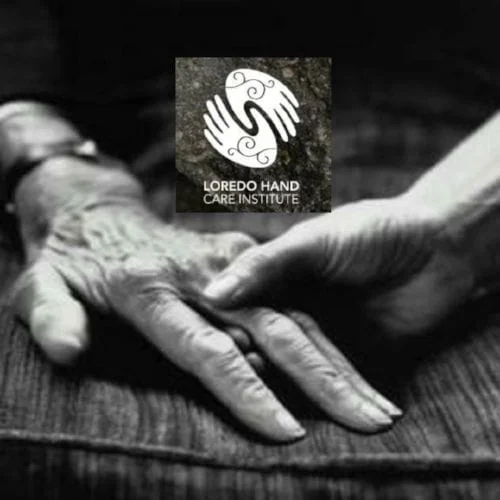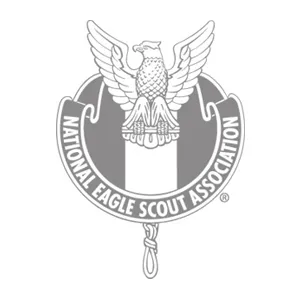Arthritis of the hand joints can be very painful. Our Dallas Thumb Basilar Joint Arthritis Treatment options are designed to help.
Dr. Pedro Loredo is a hand care specialist serving Dallas, Fort Worth, and the entire Metroplex. Learn more about our Thumb Basilar Joint Arthritis treatments in Dallas, Texas.
What is Thumb Basilar Joint Arthritis?

What Are the Symptoms of Thumb Basilar Joint Arthritis?
Symptoms of Thumb Basilar Joint Arthritis include the following:
- Pain in the CMC joint at the base of the thumb where it meets the wrist, especially when grasping objects
- Difficulty opening doors and jars
- Grip and/or pinch weakness
Dr. Loredo’s Approach to Treating Thumb Basilar Joint Arthritis
Non-Surgical Treatment Options
Depending on the severity of the condition, Dr. Loredo may attempt to treat non-surgically before recommending surgery. Non-surgical treatments include:
- Anti-inflammatory medications (NSAIDs) taken orally to relieve inflammation and pain
- Resting and icing the affected area
- The use of splints to support the thumb joint
- Steroid injections to reduce swelling and pain
Surgical Treatment Options
You can take comfort in knowing that Dr. Loredo's treatment plan centers around the severity of your symptoms, not just your X-ray images. In the event that non-surgical treatment is ineffective and based on the severity of the symptoms, Dr. Loredo may recommend surgery on the affected thumb joint.
If the condition is not responding to non-surgical treatment and is not extremely advanced, arthroscopy of the thumb basilar joint may be an option. Arthroscopy allows the surgeon to see inside the joint and make repairs using a fiber optic instrument and without having to make a large incision.
Depending on the patient’s specific circumstances, Dr. Loredo may opt for a minimally-invasive procedure involving the implantation of an Artelon® Spacer to connect the joints. This procedure can be performed arthroscopically and without having to remove any bone.
If the Thumb Basilar Joint Arthritis is more advanced and arthroscopy is not an option, Dr. Loredo will recommend surgery using the Mini TightRope® CMC Technique. In this procedure, the trapezial bone is removed and the thumb metacarpal is suspended using two strands of FiberWire, allowing for capsular healing, hematoma, and scar tissue formation in the trapezial space. This space may also be filled with a graft or artificial spacer. This technique is further illustrated in this video animation.

Dr. Pedro Loredo, Fellowship Trained Board Certified Hand Surgeon, is here to treat your hand pain from arthritis. Call us at Loredo Hand Care Institute (972)426-2708 or visit our website www.loredohands.com
What Can I Expect After Surgery?
In general, patients recovering from surgery for Thumb Basilar Joint Arthritis should plan to wear a thumb splint for up to six weeks. While wearing the thumb splint, you will still have use of your hand and the tip of your thumb.
Depending upon the type of treatment chosen, patients can expect the following post-surgical recovery times:
- If Arthroscopy is used to clear out the joint space, patients can expect a one week recovery period.
- If an artelon spacer is placed, patients can expect a 6 week recovery period.
- If the Mini TightRope® CMC Technique is used, patients can expect an approximately 3-5 week recovery period.
Frequently Asked Questions
What causes Thumb Basilar Joint Arthritis?
The condition may result from the natural progression of wear and tear on the joint(s) or may follow an injury to the joint(s).
Are certain groups of people at higher risk for Thumb Basilar Joint Arthritis?
Yes, the condition is more common in women than men and in people over the age of 40. Additionally, some people are more genetically predisposed to the condition due to joint ligament laxity or malformed joints.
Is there anything I can do to prevent the condition from worsening?
There are some things you can do at home which may be able to lessen the severity of the pain associated with Thumb Basilar Joint Arthritis and help improve joint mobility, including:
- Exercises which extend your thumb through its full range of motion
- Avoid activities which require strong gripping or clenching (such as opening jars or using certain tools)
- Apply heat or cold to relieve swelling of the joint(s)
Contact the Loredo Hand Care Institute
If you are experiencing any of the symptoms associated with Thumb Basilar Joint Arthritis or would like to learn more about our practice in the Dallas area, please contact us today.
